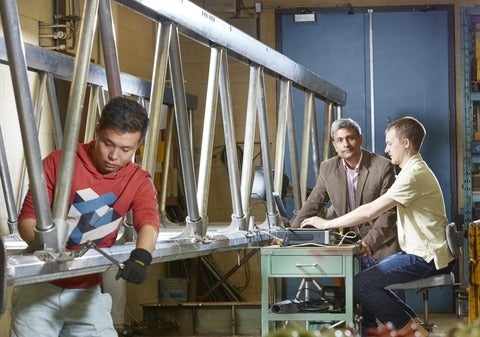Programming ‘magic’ helps student land scholarship
Marks north of 90 and a passion for computer programming have earned a Waterloo Engineering student a national scholarship worth up to $22,500 over three years.
Corbin McElhanney, 19, now in his second year of the software engineering program, topped candidates nominated by engineering deans across Canada to win a National Engineering Scholarship for 2017.




